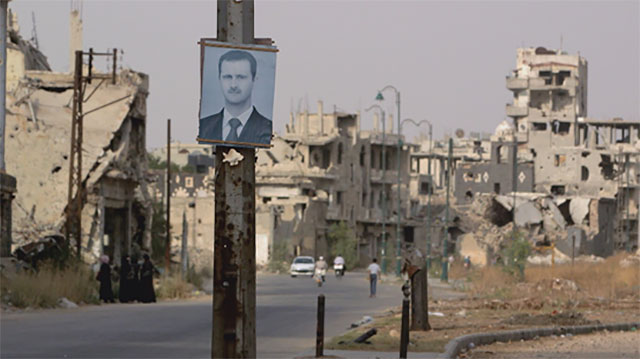Reverse Results… Civil Unrest and Conflicts Threaten Fragile Stability in Syria
Once Again Civil unrest and conflicts threaten Syria's fragile stability once again

The alliance led by the Kurds and supported by the US military to combat ISIS faces a new challenge to its authority in the oil-rich eastern province of Deir Ez-Zor amid widespread clashes with local tribes.
Back to Unrest
The US-based “Monitor” website reported that what began as isolated skirmishes following the arrest of the US-backed Syrian Democratic Forces’ military council head in Deir Ez-Zor on Sunday has led tribal leaders to demand self-governance from the Kurdish-led authorities.
It continued: The ongoing tensions, which have been simmering for a long time, threaten to undermine cohesion within the part of Syria controlled by the United States, raising fears that other parties to the conflict may seize the opportunity to push back Kurdish gains and perhaps launch attacks on US military forces in an attempt to drive them out of the resource-rich northeastern region. This means a return to civil unrest in Syria, which has seen cautious calm for a long time.
It added: After more than a decade of conflict, Syria remains a mix of foreign-backed warlords: the United States continues to pressure the remnants of ISIS, Turkey supports Syrian opposition fighters, while Russia backs the Bashar al-Assad-led Syrian government, which has recently received new support from the Arab world and Europe.
Reverse Results
Pentagon Press Secretary Pat Ryder told reporters on Thursday about approximately 900 US troops in Syria: “We are now confident that we will be able to continue working with the international coalition to continue focusing on the mission to defeat ISIS.”
He added: “We retain the right to self-defense, and we will take appropriate measures to protect our forces and ensure their safety.”
The US-led coalition issued a separate statement on Thursday, calling on warring parties to de-escalate, saying: “Violence in northeastern Syria must stop, and efforts should return to bringing peace and stability to northeastern Syria, free from the threat of ISIS.”
Initial reports suggested that the Syrian Democratic Forces arrested the head of the Deir Ez-Zor Military Council, Ahmed al-Khabil, known as Rashid Abu Khawla, in the city of Hasakah last Sunday. On Wednesday, the Syrian Democratic Forces confirmed that they had arrested Abu Khawla and four of his aides, citing allegations ranging from drug trafficking and nepotism to poor security management in Deir Ez-Zor. The forces led by the Kurds also accused Abu Khawla of “communicating and coordinating with foreign entities hostile to the revolution,” a possible reference to Turkey-backed factions, the Bashar al-Assad regime in Damascus, or its Russian and Iranian supporters.
The US-based site noted that the arrest did not appear to be sudden, as the militia leader and his loyalists have long tested the patience of Kurdish leaders while facing a series of criminal charges by local tribes in Deir Ez-Zor over the years, and concurrently with his arrest on Sunday, the Syrian Democratic Forces hurried to launch raids in the eastern region targeting what they said were dormant cells of ISIS and “criminal elements” and smugglers.
An official in the Syrian Democratic Forces said: “Some of these criminal elements and drug traffickers were members of the Deir Ez-Zor Military Council.”
The US-based site noted that the invasion operation seemed to have had reverse results, as of Wednesday, the fighting had spread, and civilian casualties had increased, with Kurdish and Arab attacks targeting checkpoints of the Syrian Democratic Forces in the Euphrates River Valley, amid allegations that the Anti-Terrorism Unit affiliated with the Syrian Democratic Forces killed four members of a single family during a raid in Daman.












